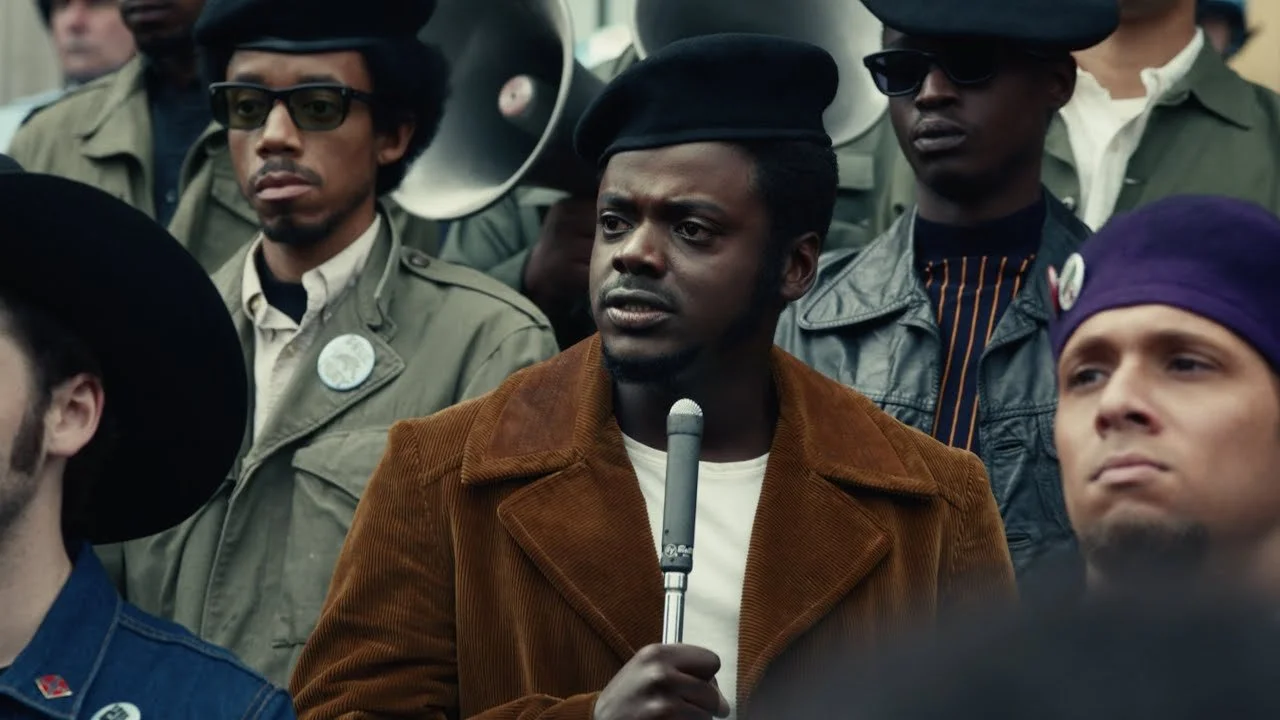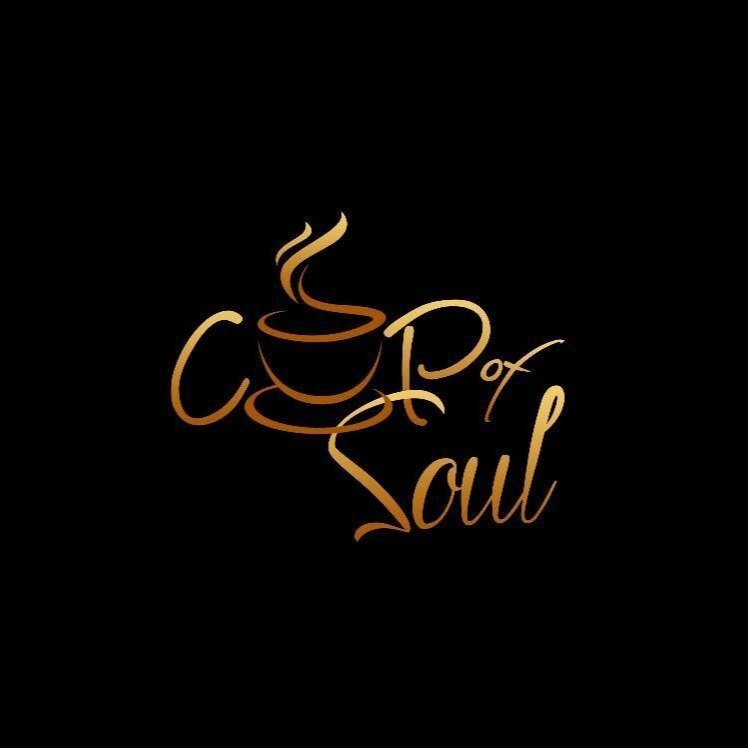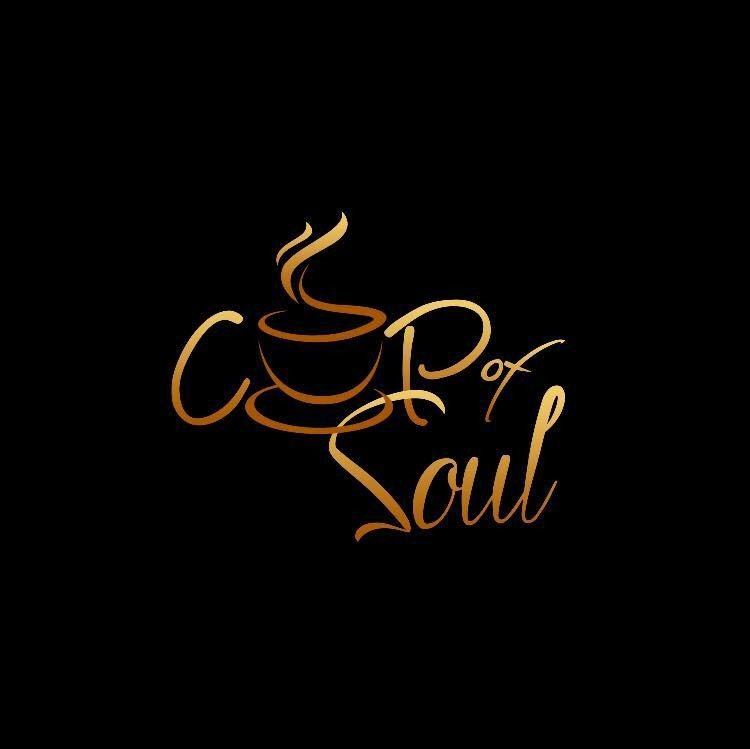
Live and Direct the Revolution will be televised
by Kathia Woods
"You can jail a Revolutionary, but you can't jail the Revolution." ~Fred Hampton.
Fred Hampton was 21 years old when he was murdered. A police raid stole him from us like a thief in the night. His son Fred Hampton Jr never met his father, and the world lost a real revolutionary.
He was strong Black, and Beautiful. Daniel Kaluuya brings Fred to life this month in Judas and The Black Messiah. It was a massive responsibility for the Brit, but he delivered.
Judas and the Black Messiah is the story of betrayal and thievery. The tragedy occurring was another strong young Black Man was taken from us too soon, this time with the assistance of a weaker man and the US Government. The film focuses on how the FBI used William O'Neil, portrayed by LaKeith Stansfield, to infiltrate the Black Panther Party. His main objective was to gain the confidence of Fred Hampton, the deputy chairman of the Illinois Black Panther Party.
O'Neil, a career petty criminal, agreed to infiltrate the Panthers in exchange to have the charges dropped for car theft. The films show how the FBI deemed the Panthers a threat because they empowered Black People. Educated Black people are a threat, especially Fred, a skilled orator who organized other disenfranchised groups in Chicago to push back against the police.
Judas and The Black Messiah isn't a bio about Fred Hampton but a reveal of how law enforcement, in this case, the FBI abused their power to execute Black Leaders they deemed to be challenging.
It also shows how they turned Black People against one another via the threat of incarceration. It's a pattern they used against Dr. King and Malcolm X.
Shaka King uses O'Neil as the vessel to show this very cold manipulation. In this film, there are two victims O'Neil and Fred.
King who directed this film as well as co-wrote the screenplay with Will Berson, chose to tell this story from two different aspects, hence me saying there were two victims. O'Neil was 17 when he was arrested. Two years later, the FBI sent him on his mission. Fred Hampton was 20 when he rose to prominence of the Illinois Black Panther Party. All these events occur from 1968-69.
A little context. King was assassinated in April of 68, creating a whole in Black Leadership. The US was getting involved in the Vietnam conflict sending many poor inner-city Black Men off to war. The Panthers were gaining prominence, and the FBI feared that they would fill the void left by King. The Panthers, unlike Dr. King, also believed in arming themselves.
Hoover played by Martin Sheen with heavy makeup, used this opportunity to squelch the Panthers' growth before becoming a threat. He was willing to use everything in his arsenal to kill their growth. Hoover used the term "Black Messiah," hence the film's title.
The film uses a bit of a creative license to introduce O'Neil to us. He was a car thief and had a long rap sheet that included home invasion to kidnapping and torture.
The movie did show how the FBI made sure to find someone that wasn't political. Agent Roy Mitchell (Jesse Plemons) asks O'Neil about King’s assignation and Malcolm X's assassination. King hurt him, but he's indifferent about Malcolm. Mitchell knew that he found his man.
Willian O’Neil is a reluctant informer, but the threat of a prison sentence wills him to cooperate.
In no time does O'neil infiltrate the Panthers and rises in the organization most importantly gains Chairman Fred's trust.
Rounding out the circle of the Illinois Black Panther Party are Jimmy Palmer (Ashton Sanders), Jake Winters (Algee Smith), Judy Harmon (Dominique Thorn), and Deborah Johnson (Dominique Fishback), who ultimately becomes Fred’s girlfriend. Deborah Johnson is now known as AKUA NJERI. She gave birth in December of 1969 to Fred Hampton Jr.
Shaka King uses all the above to create the tension necessary to show how the Illinois Black Panther Party tumbled from the inside out. Fred was a uniter. He understood that the one thing all poor, disenfranchised people had in common was abuse at the hands of the police. Imagine gangs of Black, Brown, and white people working together against the government.
He also showed that while O'Neil was gaining favor with Hampton, others in the organization were weary of the young upstart.
The most mesmerizing part of this film is Daniel Kaluuya as Fred Hampton. He is a skilled actor. He immersed himself into Fred, and it shows. His performance is riveting. A part of us is rooting for Fred knowing what his ending will be. We are entranced because Kaluuya is yielding a weapon of words with strength and conviction. Everything is spot on from the accent to the body movement.
Lakeith is also great as O'Neil. The viewer can see the conflict within him. At first, he didn't care about the Panthers, but once he saw their work up close and spent time with Fred it became a struggle to continue the betrayal. He was also uncomfortable letting these white men use him to bring down a good Black Man. Stansfield had to give a quieter performance but amazingly effective.
Dominique Fishback is a young woman making a lot of noise this year. I enjoyed her as Deborah but wanted there to be more scenes between her and Fred for us to get a better picture of their relationship. She played a prominent role in Fred's life and the Party. Women were leaders and never treated as secondary.
The pacing off this film isn't always the best. It also tried to give us a lot of information in extraordinarily little time. It excels when we see Fred Hampton in his element—speaking to the community with ease and fluidity.
It's also tricky to peace all the tragic elements since most are dead or have chosen not to speak on those events. AKUA NJERI and Fred Hampton Jr were the consultants on the film.
The most important thing to take away from this movie is how things haven't changed much in the inner cities of Chicago, New York, Philadelphia, etc. After a summer of Civil Unrest and Worldwide protests from Black Lives Matter, we have society labeling activists as agitators, thugs, and criminals. Sounds eerily familiar.
Judas and the Black Messiah remind us that we are deemed troublemakers whenever Black People demand justice and humanity. It's going to be hard for Black People to process the devastating loss of this charismatic leader.
Shaka King made a conscious decision not to show the murder of Fred Hampton instead, we hear the gunshots. We don't see it, but we feel it. Those gun shots are still echoing in my ears.

